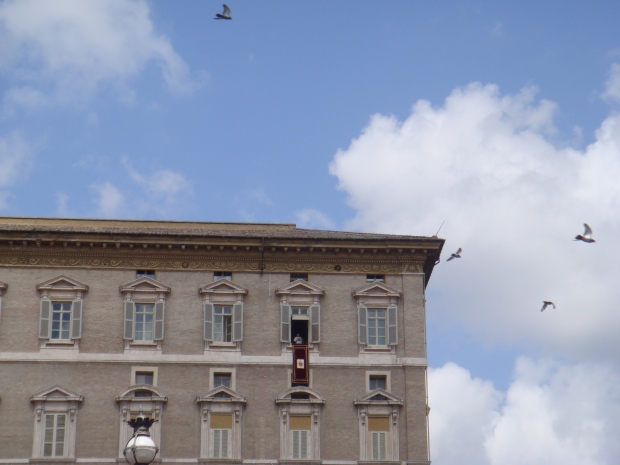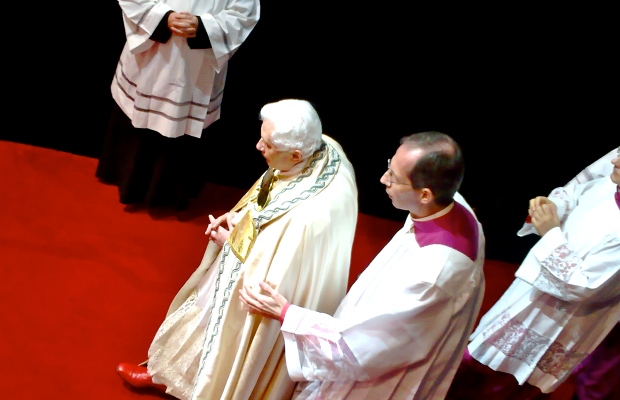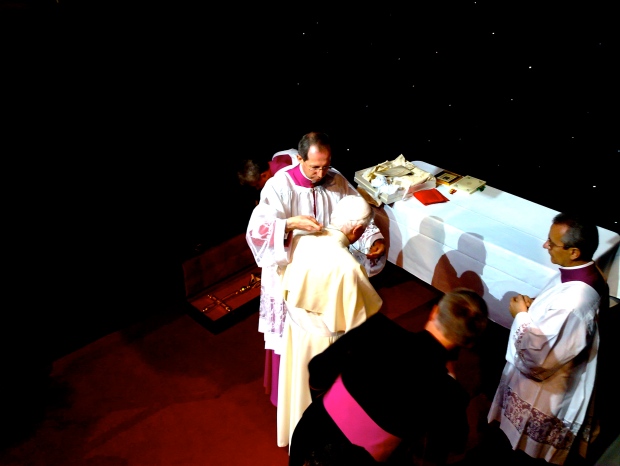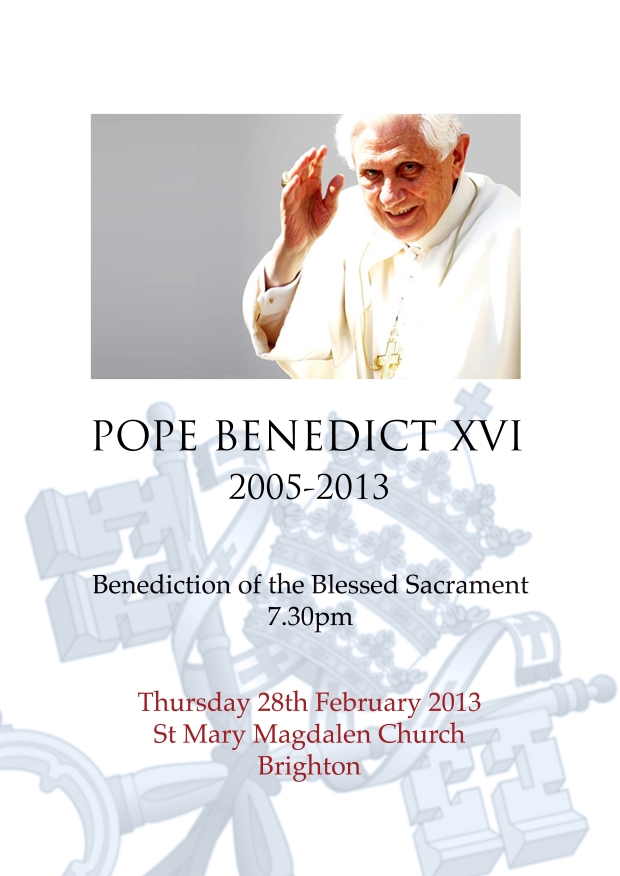I have just been watching the Holy Father’s final speech to the crowds at Castel Gandolfo.

Hanging from the side of a medieval house were a series of silver helium balloons which read “Grazie Benedetto. Siamo tutti con te.” What a moving declaration, ‘We are always with you.” I think it sums up perfectly the effect Pope Benedict’s reign has had and will continue to have on our Holy, Mother church.
I was reading Annie from LMS Arundel and Brighton’s illuminating post earlier on her personal reflections of the election of Pope Benedict and the subsequent effect he had on her life and her worship. It got me thinking of what Pope Benedict has meant to me. When Pope John Paul II died I was a lapsed Catholic. I hadn’t been to church for years except for the occasional dutiful visit with my family at Christmas. I remember watching the events of the conclave unfold on Sky news and feeling a sense of obligation that l should go to Mass. I found a church down the hill from my flat and went along one Sunday and they were singing Latin. I subsequently discovered it was this wonderful stuff called Plainsong, it was the Missa de Angelis incidentally, and so the journey began.
And then there was that document that changed everything. People used expressions l had never heard of before like ‘motu proprio’ and long words with lots of syllables like ‘promulgated.’ Masses become known as ‘forms.’ Here we were celebrating an ‘ordinary form’ but then there was another called the ‘extraordinary form.’ I knew it was a big deal but l didn’t really understand why. I just knew you were not permitted to sing ‘Shine Jesus Shine’ in the extraordinary form and that was good enough for me.
And from there, the liturgy seemed to come alive. I became hooked on Gregorian Chant, I started meeting people who were also hooked on what they believed was the music of the Mass; they were even singing it at St. Peter’s Basilica by now. People were talking about singing the texts of the Mass rather than just a bunch of hymns and the liturgy was changing. Things like Adoration of the Blessed Sacrament started happening, people started kneeling for Holy Communion, priests turned their backs on us, and then we had the new translation of the Roman Missal and even the English now seemed to bear some resemblance to it’s former Latin.
And in the midst of all this change, this progression, was one man leading the vision. I realised l could become a groupie.
I first saw Pope Benedict on his balcony saying the Angelus on a Sunday morning in Rome over years ago. It must have been after Easter because l remember singing the Regina Caeli. It was quite extraordinary.
There were lots of hysterical nuns, and priests in tears and screaming school children and this huge atmosphere of adulation. It wasn’t dissimiliar to the atmosphere l had experienced many years earlier in my hippy/indie kid days at Glastonbury, except this time the dog collars worn were quite different.
I was then honoured to sing at Hyde Park when the Pope visited Britain in 2010. He passed me only several feet again. I was awe-struck. Again, the rock-concert atmosphere. Thousands screaming at him as he drove into the arena in his Popemobile. Those red shoes.
People had said his visit would not be a successful. We adored him.
And now, his reign is nearly at an end and no doubt the newscasters will already be writing their reports asking what his legacy will be. ( I have been trying to avoid using the ghastly ‘l’ word.) I would like to thank Pope Benedict for this:
And for this: (The Ordinariate is a wonderful thing!!)
And just to say, Grazie Benedetto, sono tutti con te.



